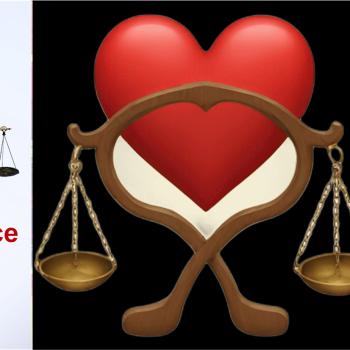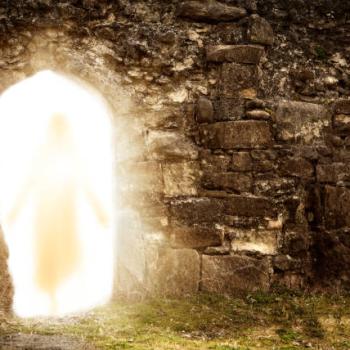Now, having known all of this, what if Jesus had simply said to the woman, "Oh my dear woman. Don't worry. Your daughter is healed. Also, I want you to know that you are a very important and valuable human being." We have to put ourselves in the shoes of the woman. Obviously, we feel grateful for the healing. We feel immensely grateful. But I doubt we feel the overwhelming sense of empowerment that comes only after we tenaciously push through all resistance and obtain our daughter's healing. An easy victory just doesn't carry the punch of one that is grabbed from the jaws of defeat. Jesus wanted her to know this second kind of joy: the joy of overcoming all odds.
And how would we feel about ourselves after Jesus's encouraging words—"I want you to know that you are a very important and valuable human being"? We'd likely feel curious that Jesus offered this kind of emotional bolstering. We would wonder how he knew we held ourselves in low esteem. But because we have felt this way since birth, we ourselves may not even realize how poorly we value ourselves. At any rate, we'd likely feel comforted for a few days, and then the feeling would fade. We'd go back to the self-depreciating attitudes we held before. Words don't pack the punch that experience offers.
What Jesus did was prove to the woman her own worthiness and power. He absolutely forced her to exert her strength far beyond what she felt was within her capacity or position. He made her struggle and push even against himself, God. And in the end, he showed her that her faith and love were so powerful that she, like Jacob, could wrestle with both man and God and overcome.
Because of this, he didn't need to tell her that she was worthy or powerful; he had proved it to her. She knew it in her heart and there was no denying it. She wasn't a weak and pitiful recipient of the crumbs of mercy from the Healer. On the contrary, she was the strong mother who wrested a blessing out of Jesus by her powerful love and tenacious faith. It was her strength, faith, persistence, and ultimately love that led to the healing of her daughter. And the only way Jesus could have achieved this healing for both the daughter and the mother was in the miraculous and paradoxical way he did it. What looked on the surface like cruelty was an act of deep love—provoking the woman to assert herself.
Simultaneously, Jesus also initiated the healing of society by publicly validating the worth of a woman and of a gentile. He sowed the seeds of change, the fruit of which still grows today throughout the world. Jesus's healing is for all—the daughter, the woman, society, and us today. This story is precisely written to exorcise our minds, today, of the same demon that bodily possessed the little girl then. Jesus's healings transcend time.
By means of this story, we too can access Jesus's healing. Jesus wants to cast out of our lives the demon of feeling worthless and unworthy of God's love. We might call this the "dog" demon. If we feel self-loathing, worthless, depressed, or the like, we can know that this demon has possessed us.
The messages that arise from a feeling of self-loathing are very convincing. Our thoughts tell us that we are worthless, and we wholeheartedly agree with this dismal assessment. Self-hatred captures us, its victims, in such a way that we cannot see any reality outside of that self-hatred. It is therefore impossible to escape self-hatred without external intervention. We need God's help.
When we feel ourselves to be nothing but a little street dog, we aren't able to come to God. I sometimes wonder how many people who drift away from God do so because they subconsciously feel unworthy of God's presence, that is, unworthy of love. But God is for the people, all of us, saints and sinners alike. We don't feel worthy of God's time and attention and so do not approach him—and as a result, we can't be healed. Because we don't approach God, we are unable to contact God's truth, which is that he loves us fully and desires that we feel loved and worthy to be alive. So when we suffer from a sense of worthlessness, we are trapped in a cycle that seems hopeless.
Jesus wants to cast this false notion out of us. This story is the means by which he does it. First, just as Jesus forced the woman to push hard for her healing, so Jesus forces us to push hard for our healing. The meaning of this story is not easy to come by. Just to understand the message of this healing, we had to delve deep and push hard. After reading Jesus's harsh words toward the woman, it would be easy—seemingly justifiable—for us to leave off faith in disappointment and upset. But just as the woman's persistence led to a great reward, so our persistence in seeking Jesus's love within this story leads to a great reward in our lives.
By persevering through the surface to the inner message of this story, we suddenly see the astounding depth of Jesus's love. His love is wiser and deeper than we'll ever know. It doesn't matter how unworthy we feel; Jesus's love reaches out to everybody. Just knowing this wins half the battle for us. But merely seeing the love of God within the story isn't enough—there is more. After having pushed through the difficulties of understanding this story, we must again tenaciously push through the difficulties within our own spirits.




